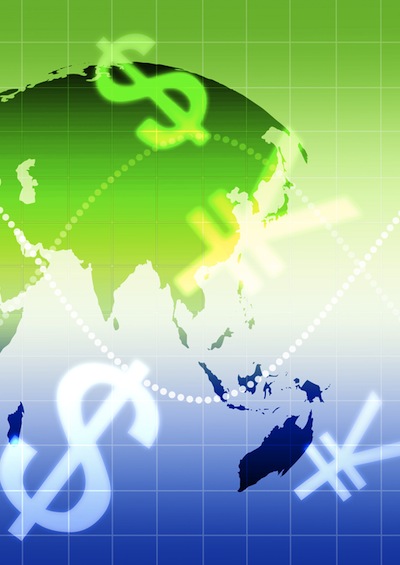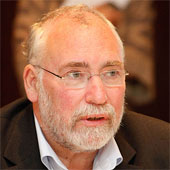The Collapse of the Global Trading System
The notion that trade per se fosters peace and prosperity is fanciful.
May 18, 2016

The notion that trade per se fosters peace and prosperity is fanciful. The trade = peace and prosperity formula is one that would be difficult to convince Africans who, until well into the latter part of the 19th century, suffered from the slave “trade.”
The same applies to the Amerindians whether in North, Central or South America for whom the consequences of “trade” included plunder and genocide. And it applies to the Chinese for whom the opium “trade” resulted in the Opium War, which heralded a century-and-a-half of exploitation and humiliation.
One might also add that there was lots of intra-European trade at the beginning of the last century, with Britain and Germany each other’s major trading partners. They still went to war in 1914!
History of international trade
The famous words of Cordell Hull, Nobel Peace Prize laureate in 1945, the U.S. Secretary of State under President Franklin Delano Roosevelt, and the man credited with being the main architect of the post-war global trade regime, must be read carefully:
I have never faltered, and I will never falter, in my belief that enduring peace and the welfare of nations are indissolubly connected with friendliness, fairness, equality and the maximum practicable degree of freedom in international trade.
Freedom, yes, but not without friendliness, fairness and equality!
That is the ideal. However, recognizing that homo sapiens is a rapacious species and that trade can rapidly degenerate into the exploitation of the weak by the strong, the authors of the global trade regime sought to ensure that it should be rules-based.
The document that was agreed in 1947, the General Agreement on Tariffs and Trade (GATT), represented a compromise. It was by no means perfect, there was scope for abuse, but, by and large, it worked.
The Cold War did not degenerate into a hot war mainly because the losers in the trade world (the socialist and protectionist third world countries) could see how much more prosperous the countries engaged in international trade became.
Thus, when the GATT was transformed into the broader and more ambitious World Trade Organization (WTO), almost all erstwhile “outsiders” rushed to be brought in as “insiders.” This culminated in the accession of China to the WTO in 2001, after 15 years of intensive negotiations.
Everything downhill
Since the launch of the WTO Doha Development Round in 2001, everything on the trade governance front has gone downhill.
The best way to understand the “theatre” of the WTO is through the prism of the great play (1921) by the Italian surrealist author, Luigi Pirandello, Sei personaggi in cerca d’autore (Six characters in search of an author). All the actors know they are supposed to be on stage, but lacking a script they are not sure what to do or what to say.
These days, key actors on the global trade stage gesture to each other, but they do not talk to each other in any coherent, let alone, cohesive way.
With the WTO effectively abandoned – becoming, as former Director General of the WTO Mike Moore feared, “the League of Nations of the 21st century world economy” (read: impotent and irrelevant) – global attention has moved to the so-called mega-regionals, primarily TTIP (Trans-Atlantic Trade and Investment Partnership) and TPA (Trans-Pacific Partnership).
Both proposed agreements are deeply flawed. They violate the principle of non-discrimination; they are eminently geopolitical and exclusive, not inclusive. With so many strikes against them, they will fail.
A quarter century after the euphoric establishment of the WTO, we have a vacuum: We no longer have a rules-based multilateral trade regime and we have nothing concrete, let alone legitimate, to have taken its place. Global trade is adrift!
Takeaways
The authors of the global trade regime first sought to ensure that it should be rules-based.
Since the launch of the WTO Doha Round, everything trade governance related has gone downhill.
Key actors of global trade gesture to each other, but do not really talk to each other.
The WTO has become “the League of Nations of the 21st century world economy” (read: irrelevant).
